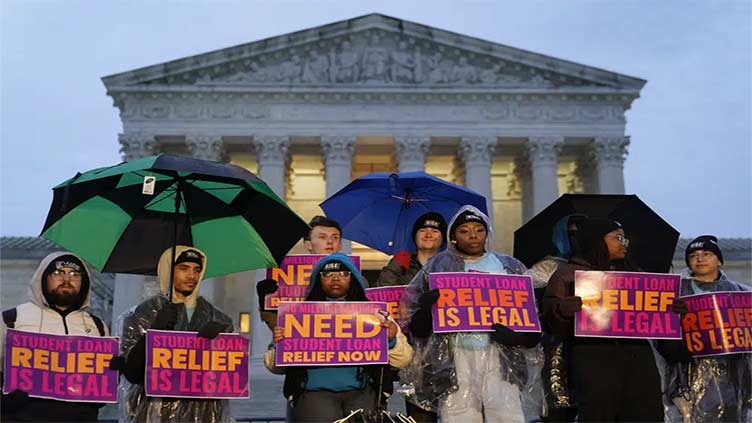Overview of Workers’ Compensation Claims
Accidents and injuries can be catastrophic, putting workers in a difficult financial and medical situation. During these difficult times, workers’ compensation can offer crucial assistance. But navigating the complicated world of workers’ compensation claims requires direction. A workers’ compensation lawyer might be useful in this situation. We will take you through the significance of workers’ compensation, the function of an attorney when to think about hiring one, how to choose the best attorney, the claims procedure, your legal rights and protections, and the appeals process in this extensive guide.
Recognizing the Fundamentals of Workers’ Compensation
Regardless of responsibility, workers’ compensation is an insurance policy that offers medical care and financial assistance to workers hurt on the job. This vital system shields companies from liability while guaranteeing that employees receive the required treatment and compensation.
Categories of Injuries at Work Covered
Workers ‘ compensation covers many types of workplace injuries, such as slip and fall occurrences, occupational diseases, repetitive motion injuries, and even psychological damage brought on by working mishaps. Workers’ compensation covers injuries ranging from small sprains to catastrophic illnesses, protecting workers during difficult times.
Principal Advantages of Workers’ Compensation
For injured workers, workers’ compensation provides several significant benefits. Medical costs, disability payments, lost income, vocational training, rehabilitation services, and even death benefits for the families of employees who pass away from their injuries are a few examples of these benefits.
Exposing the Function of a Workers’ Compensation Lawyer
A. Outlining the Function of a Workers’ Compensation Lawyer
A workers’ compensation lawyer protects injured workers’ rights and ensures they get the benefits they are legally entitled to. These attorneys are skilled in managing the intricacies of the claims procedure and thoroughly understand workers’ compensation rules.
B. How Lawyers Help You Through the Claims Process
Navigating the workers’ compensation claims procedure can be complicated, particularly when healing from an injury. A capable lawyer will lead you through the complex processes, assisting you in obtaining the required proof, finishing the paperwork, and meeting all the deadlines.
C. Advantages of Using a Specialist Lawyer
There are many benefits to hiring a workers’ compensation specialist lawyer. These legal professionals know the system’s intricacies and will ensure your rights are upheld and fairly compensated for your injuries. They are also ready to take your case to court and have excellent negotiating abilities.
When to Think About Contacting a Workers’ Compensation Lawyer
A. Difficult Cases Needing Legal Knowledge
Certain claims and injuries at work are more complex than others. Hiring an attorney is crucial if your case involves:
- A serious injury.
- A long-term disability.
- Pre-existing conditions.
- Questions about the degree of your impairment.
Their knowledge will guide you through the difficulties and help you build a compelling argument.
B. Refused or Postponed Claims: Causes and Remedies
Regrettably, insurance companies might delay or deny workers’ compensation claims. A workers’ compensation lawyer will fight for you if you find yourself in this unpleasant circumstance, ensuring your claim is fairly assessed and challenging any erroneous denials.
C. Optimizing Recompense: Situations to Seek Legal Advice
If you attempt to navigate the workers’ compensation system alone, you can wind up with less money than you are due. You must speak with an attorney if you feel the compensation for your injuries is insufficient. They will evaluate your case, compile supporting documentation, and pursue the highest possible settlement on your behalf.
Selecting the Best Workers’ Compensation Lawyer
A. Looking Up Possible Lawyers
Investigating potential workers’ compensation lawyers carefully is necessary. Find lawyers specializing in workers’ compensation using internet resources like legal directories and bar association websites. Get referrals from friends, relatives, and coworkers who may have had good experiences with this type of attorney.
B. Assessing the Experience and Expertise of the Lawyer
When assessing a prospective lawyer’s experience and knowledge of workers’ compensation claims. Seek lawyers who understand your particular injury or sector and have successfully handled comparable cases. Look into their case settlements and success rates to ensure a history of getting good results.
C. Taking the Attorney’s Credibility and Compatibility Into Account
Although experience and knowledge are vital, compatibility and a good reputation are just as significant. Examine internet reviews and endorsements to learn about the lawyer’s standing and past clients’ experiences. Furthermore, give preference to lawyers who value communication and trust, as candid and open discussion is essential during the claims procedure. Be aware of the attorney’s fee schedule and payment options in advance to prevent surprises.
Handling the Claims Procedure: Consulting a Workers Compensation Lawyer
A. First Consultation and Case Assessment
During the first meeting, your lawyer will acquire all the necessary paperwork and case-related information. Examples include medical records, incident reports, witness accounts, and pertinent correspondence. Your lawyer may evaluate the strength of your case and explain prospective outcomes and legal solutions based on a thorough grasp of the specifics of your case.
B. Constructing and Outlining a Powerful Argument
Gathering and presenting solid evidence is a crucial step in the claims process. Your lawyer will collaborate closely with physicians and other experts to gather supporting medical records and documentation. They will also help document non-medical costs and damages, including lost wages, emotional anguish, and pain and suffering.
D. Reaching Settlement Agreements or Taking Legal Action
Workers’ compensation cases are settled through discussion quite frequently. Your attorney will use practical techniques to negotiate a just settlement that pays for all your losses and expenses. Your lawyer will prepare for mediation or alternative dispute resolution if a settlement cannot be reached. They will assist you with the lawsuit procedure, ensuring your rights are upheld in court if needed.
Knowing Your Rights and Protective Measures When Filing Workers’ Compensation Claims
A. Workers Compensation Laws’ Provision of Employee Protections
Employee protection is the goal of workers’ compensation laws in several ways. Employers must provide a safe workplace that is free from risks and hazards. Employees also have the right to adequate medical care and rehabilitation services to aid in their recovery. In addition, these rules cover protection from discrimination or retaliation for submitting a workers’ compensation claim.
B. Restrictions and Limitations on Benefits Under Workers Compensation
Although benefits under workers’ compensation are extensive, there are some restrictions and limitations to be aware of. The maximum compensation an employee may be entitled to for their injuries is determined by statute limitations. Additionally, to determine the integrity and scope of an employee’s injuries, independent medical examinations, or IMEs, are periodically sought. In addition, deadlines and time restrictions for filing claims must be rigorously followed.
C. Reconsideration and Appeals: The Procedure for Contesting Denied Claims
Although claim denials can be discouraging, there are ways to appeal the decision. Should your claim be rejected, your lawyer will examine the grounds for the rejection and devise plans to get beyond these roadblocks. Reconsideration allows you to contest an original claim denial within a predetermined time window. If this is unsuccessful, you can hear your case before an administrative law judge through appeals.
Synopsis
Our extensive guide covers all the important factors to consider when selecting a workers’ compensation lawyer. We started by reviewing the fundamentals of workers’ compensation, emphasizing the value of this scheme and its advantages. Next, we learned about the function of attorneys, the situations in which they are required, and how to choose the best lawyer for your particular requirements. We discussed your legal rights and protections and dug into the claims procedure. Finally, we looked at the claims denial appeals procedure. With the assistance of knowledgeable legal counsel, people can successfully negotiate the complexity of workers’ compensation claims by using this guidance.










